Intro
Discover your 13 weeks pregnant belly size and what to expect during this trimester, including fetal development, pregnancy symptoms, and body changes, to ensure a healthy pregnancy journey with a growing bump.
At 13 weeks pregnant, you're entering your second trimester, a period often referred to as the "golden period" of pregnancy. This phase is characterized by a reduction in morning sickness and fatigue, allowing you to feel more energetic and comfortable. One of the most noticeable changes during this time is the growth of your belly. Understanding the typical belly size at 13 weeks pregnant can help you navigate this period with more confidence and anticipation.
As you progress through your pregnancy, your belly will continue to expand. At 13 weeks, your uterus has expanded to the point where it is about the size of a grapefruit. This expansion can lead to a visible baby bump, although the size can vary significantly from one woman to another. Factors such as your pre-pregnancy body size, whether this is your first pregnancy, and your overall body composition can influence how noticeable your belly is at this stage.
Your baby is also undergoing significant developments. At 13 weeks, they are approximately 2.5 inches long and weigh about 0.25 ounces. Despite their small size, they are fully formed, with all major organs and body systems present. Their skin is translucent, and their digestive system is practicing contractions, preparing for life outside the womb. Understanding these developments can make the experience of watching your belly grow even more fascinating and personal.
Understanding Belly Growth at 13 Weeks
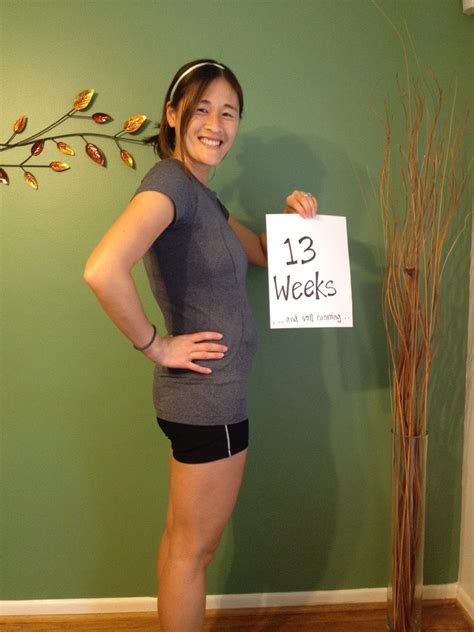
The growth of your belly at 13 weeks pregnant is a result of your uterus expanding upwards and outwards. This expansion is not just due to the size of your baby but also the accumulation of amniotic fluid, the placenta, and the increased blood volume. For many women, this period marks the beginning of wearing maternity clothes, as their regular clothes may start to feel tighter around the waist.
It's essential to remember that every pregnancy is unique, and there is a wide range of normal when it comes to belly size. Some women may notice a more pronounced bump earlier in their pregnancy, while others may not show as much until later on. Factors such as muscle tone, body shape, and the position of the baby can all influence how your belly appears.
Factors Influencing Belly Size
Several factors can influence the size and appearance of your belly at 13 weeks pregnant. These include: - **First Pregnancy vs. Subsequent Pregnancies:** Women who are pregnant for the first time may notice their belly expanding more slowly compared to those who have been pregnant before. This is because the abdominal muscles are tighter in first-time pregnancies. - **Body Type:** Women with a smaller frame or less body fat may notice their belly more quickly than those with a larger frame or more body fat. - **Position of the Baby:** The position of the baby in the uterus can affect the shape and size of your belly. Babies who are positioned with their feet down may cause the belly to appear more rounded, while those with their feet up may cause it to appear more compact. - **Multiple Pregnancy:** Carrying twins or multiples will result in a larger belly size earlier in the pregnancy compared to carrying a single baby.Managing Your Growing Belly
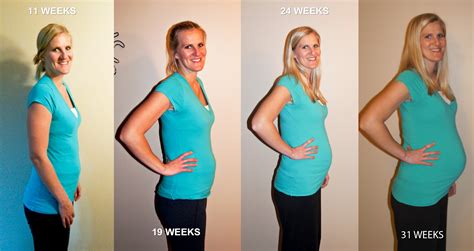
As your belly grows, it's essential to prioritize comfort and support. Here are some tips for managing your growing belly:
- Wear Comfortable Clothing: Opt for maternity clothes that are comfortable and supportive. Look for pants and skirts with elastic waistbands and tops that can accommodate your growing bust.
- Exercise Regularly: Gentle exercises like prenatal yoga, swimming, and walking can help maintain your physical and mental well-being. Always consult with your healthcare provider before starting any new exercise routine.
- Maintain Good Posture: Good posture can help reduce back pain and make you look and feel more confident. Stand up straight and avoid slouching, which can put unnecessary strain on your back.
- Eat a Balanced Diet: Focus on consuming a balanced diet rich in fruits, vegetables, whole grains, lean proteins, and healthy fats. A well-nourished body supports the growth of your baby and your overall health.
Nutritional Advice for a Healthy Pregnancy
Eating a balanced diet is crucial during pregnancy to support your health and your baby's development. Key nutritional advice includes: - **Increase Caloric Intake:** As your pregnancy progresses, you'll need to increase your caloric intake to support your baby's growth. However, this increase should be moderate, aiming for an additional 300 calories per day. - **Stay Hydrated:** Drinking plenty of water is essential for maintaining your health and supporting your baby's development. Aim for at least 8 cups (64 ounces) of water per day. - **Choose Nutrient-Dense Foods:** Focus on foods rich in essential nutrients like folic acid, iron, calcium, and protein. Examples include leafy greens, beans, nuts, dairy products, and lean meats.Emotional and Physical Changes
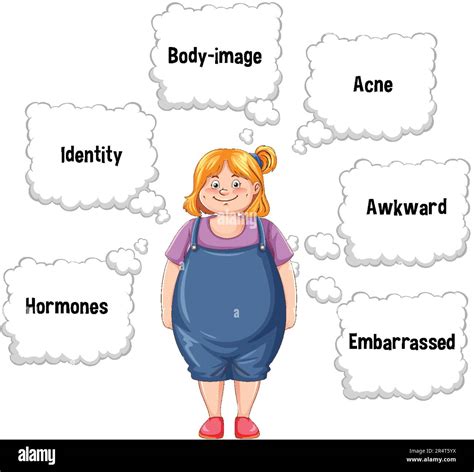
At 13 weeks pregnant, you may experience a range of emotional and physical changes. Emotionally, you might feel more connected to your baby, especially as you start to feel their movements. Physically, you may notice changes in your skin, hair, and nails, due to hormonal fluctuations.
Some common physical changes include:
- Skin Changes: You may notice your skin becoming more sensitive, and some women experience a condition known as the "mask of pregnancy" (melasma), which are patches of darker skin on the face.
- Hair and Nail Changes: Many women experience thicker, healthier-looking hair and faster-growing nails during pregnancy, due to increased blood volume and hormone levels.
- Breast Changes: Your breasts may become larger and more sensitive, preparing for milk production.
Coping with Emotional Changes
The emotional changes during pregnancy can be significant, and it's essential to have strategies for coping with them. Here are a few tips: - **Stay Connected with Loved Ones:** Talking to your partner, family, and friends about your feelings can provide emotional support and help you feel less isolated. - **Engage in Relaxation Techniques:** Practices like meditation, deep breathing, and prenatal yoga can help manage stress and anxiety. - **Join a Pregnancy Support Group:** Connecting with other pregnant women can provide a sense of community and help you feel more supported throughout your pregnancy journey.Pregnancy Complications and Concerns
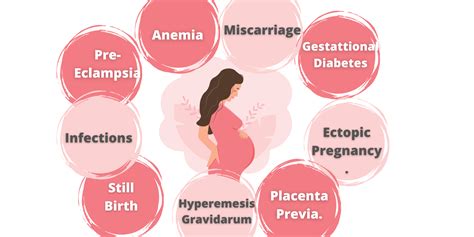
While most pregnancies proceed without major complications, it's important to be aware of potential issues that can arise. Regular prenatal care is crucial for monitoring your health and your baby's development, allowing for early detection and management of any complications.
Some common concerns during the second trimester include:
- Gestational Diabetes: A condition characterized by high blood sugar levels that are first recognized during pregnancy. Managing diet and, if necessary, insulin levels can help control the condition.
- Hypertension: High blood pressure during pregnancy can lead to complications such as preeclampsia. Regular monitoring of blood pressure and adherence to any prescribed treatment are vital.
- Preterm Labor: Labor that begins before 37 weeks of pregnancy. Recognizing the signs of preterm labor, such as regular contractions and a change in vaginal discharge, and seeking immediate medical attention if they occur, is crucial.
Preventing Complications
While not all complications can be prevented, there are steps you can take to reduce your risk: - **Attend Prenatal Appointments:** Regular check-ups with your healthcare provider are essential for monitoring your health and your baby's development. - **Maintain a Healthy Lifestyle:** Eating a balanced diet, staying hydrated, exercising regularly, and avoiding harmful substances like alcohol and tobacco can support a healthy pregnancy. - **Manage Stress:** Chronic stress can have negative effects on your pregnancy. Engaging in stress-reducing activities and seeking support when needed can help manage stress levels.Preparing for the Birth of Your Baby
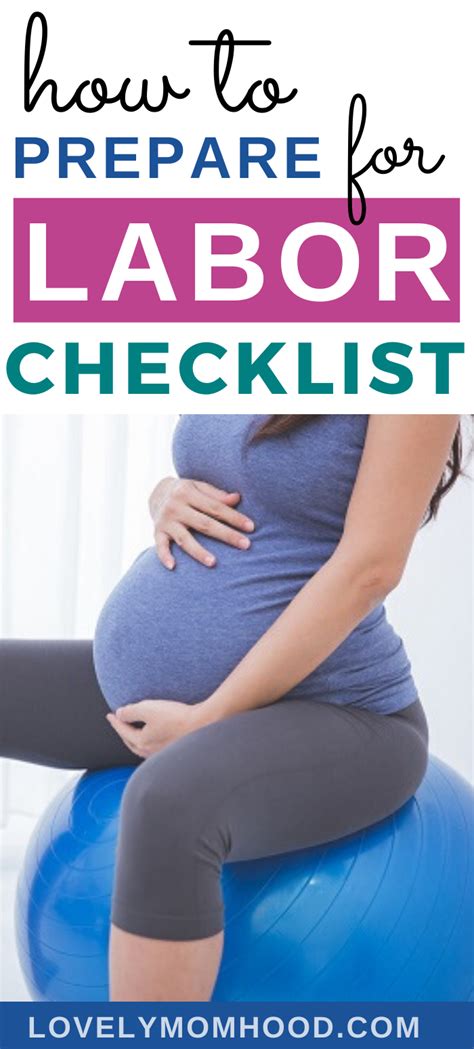
As your pregnancy progresses, preparing for the birth of your baby becomes more pressing. This includes deciding on a birth plan, choosing a healthcare provider, and considering breastfeeding and parenting classes.
Some key considerations for preparing for birth include:
- Birth Plan: A birth plan outlines your preferences for labor, delivery, and postpartum care. It can include choices like pain management options, labor positioning, and newborn care practices.
- Breastfeeding: Learning about breastfeeding and considering a lactation consultant can help you prepare for feeding your baby.
- Parenting Classes: Taking parenting classes can provide valuable information on caring for a newborn, including topics like bathing, feeding, and soothing.
Creating a Birth Plan
A birth plan is a personal document that communicates your wishes to your healthcare providers. When creating a birth plan, consider the following: - **Labor Preferences:** Think about your preferences for labor, such as whether you want to use a birthing pool, have continuous monitoring, or use specific pain relief methods. - **Delivery Preferences:** Decide on your preferences for delivery, including whether you want an epidural, to use stirrups, or to have a natural delivery. - **Postpartum Care:** Consider your preferences for postpartum care, including breastfeeding support, newborn screening tests, and visitor policies.What is the average belly size at 13 weeks pregnant?
+The average belly size at 13 weeks can vary, but the uterus is about the size of a grapefruit. Visible belly size can be influenced by factors like pre-pregnancy body size and whether this is your first pregnancy.
How can I manage my growing belly comfortably?
+Wearing comfortable clothing, exercising regularly, maintaining good posture, and eating a balanced diet can help manage your growing belly comfortably.
What are some common complications that can arise during pregnancy?
+Common complications include gestational diabetes, hypertension, and preterm labor. Regular prenatal care and a healthy lifestyle can help reduce the risk of these complications.
How can I prepare for the birth of my baby?
+Preparing for birth includes deciding on a birth plan, choosing a healthcare provider, considering breastfeeding and parenting classes, and learning about newborn care.
What should I include in my birth plan?
+Your birth plan should include your preferences for labor, delivery, and postpartum care, such as pain management options, labor positioning, and newborn care practices.
As you continue on your pregnancy journey, remember that every experience is unique, and what's most important is the health and well-being of you and your baby. Staying informed, maintaining a healthy lifestyle, and seeking support when needed can make this period more enjoyable and help you feel more prepared for the arrival of your baby. If you have any questions or concerns, don't hesitate to reach out to your healthcare provider. Sharing your experiences and insights with others can also provide valuable support and community. Consider commenting below to share your story or ask questions, and don't forget to share this article with anyone who might find it helpful. Together, we can support each other through the incredible journey of pregnancy and parenthood.
